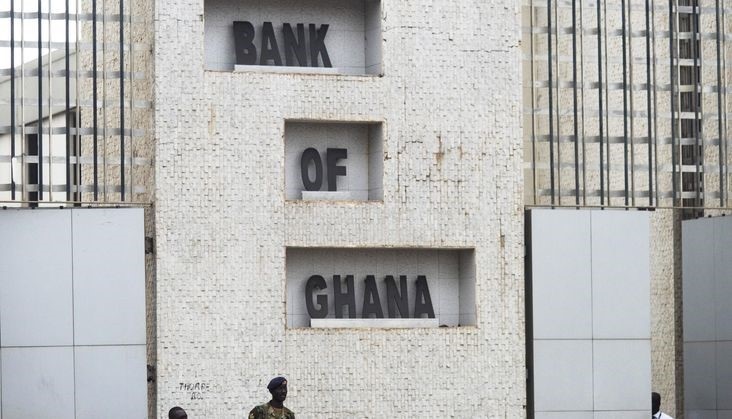Ghana’s Central Bank: Navigating the tightrope of economic stability

GHANA’S central bank faces a critical decision as it navigates the complex trade-off between reducing borrowing costs and maintaining price stability.
Amid recent improvements in inflation, which fell to 20.4% in August 2024, there are growing calls for the Bank of Ghana’s Monetary Policy Committee (MPC) to cut its policy rate to support struggling businesses and households.
However, experts, including Associate Professor of Economics at Niagara University, Prof. Dennis Nsafoah, caution that maintaining the current stance is essential to safeguard against inflationary risks and exchange rate pressures that could undermine long-term economic stability.
Nsafoah pointed to the recent disinflation trend as a potential reason for easing monetary policy. Ghana’s inflation fell to 20.4% in August 2024, down from 20.9% in July, marking a modest but significant improvement in the country’s inflationary outlook.
Coupled with accommodative monetary policies being adopted by major central banks globally, including a 50-basis-point rate cut by the U.S. Federal Reserve, the argument for a policy rate reduction in Ghana appears plausible.
However, Nsafoah noted that despite the progress, uncertainties still loom over the inflation outlook for the remainder of the year. One of the key risks is the ongoing pressure on the cedi, which continues to weaken against major currencies like the US dollar.
The Bank of Ghana, in its July Monetary Policy Report, highlighted the exchange rate challenges as one of the factors threatening to reverse the disinflation trend. Other external factors, including volatile global commodity prices, could also impact inflation in the coming months.
Given these risks, Professor Nsafoah argued that the central bank should maintain its current policy stance to mitigate inflationary pressures. “The Bank of Ghana should maintain its focus on its primary mandate of price stability,” he stated.
He emphasized that while a rate cut might ease borrowing costs for businesses and households, it could also reignite inflationary pressures, especially with the persistent challenges in exchange rate stability.
The Bank of Ghana is targeting a year-end inflation rate of 17%, and experts believe that a premature loosening of monetary policy could undermine this objective. The challenge now is finding the right balance between supporting economic growth and controlling inflationary risks.
Amid these considerations, other economic indices also need to be monitored. Ghana’s foreign reserves have been under strain, and the government’s fiscal consolidation efforts are still in progress. Additionally, the country’s external debt obligations and reliance on imports continue to place pressure on the cedi, further complicating the inflation outlook.
As the MPC Chairman prepares to announce the decision of the committee, all eyes are on how the central bank will navigate this complex economic landscape. While some advocate for a rate cut to stimulate growth, the underlying risks make a compelling case for caution.




